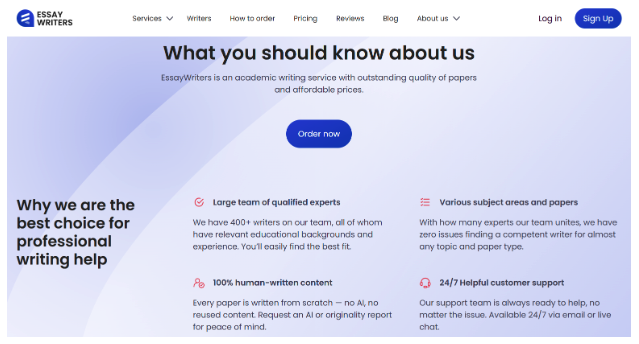Giving Up on Job Search
The job search process can be a long and arduous journey. It can often feel like an endless cycle of submitting applications, attending interviews, and waiting for responses. Giving up on a job search can be a challenging decision to make. While it’s understandable to feel discouraged and frustrated during a job search, giving up is usually not the answer. However, there are some situations where a job search break can be very beneficial. In this article, we’ll explore some of the reasons people give up on their job search, some strategies to help keep job seekers motivated and focused on their search, and some situations where a job search break could be your best decision.
Reasons Job Seekers Give Up on a Job Search
Job hunting can be a time-consuming and stressful process, and it can be easy to become discouraged along the way. Some of the most common reasons why people give up on their job search include the following.
The absence of a support network
Whenever anyone is going through a challenging time, having people around you to support you is essential. Job searching is arguably one of the most challenging times many of us go through.
Having a combination of coaches (people who can help us make sense of things) and cheerleaders (people who can listen and provide emotional support and motivation) are directly related to job search success. Oftentimes when individuals lack a well-balanced support network, job seekers give up on their job hunt.
If all you hear is hiring manager after hiring manager rejecting you, you’ll start to doubt your abilities and become discouraged from job searching. It’s important to have voices around you that motivate you, celebrate your wins, and help you make progress toward your job search goals.
One way you can start to develop a support network is to attend events that put you in touch with people who can support your personal and career development. These events could be career fairs, community meetings, workshops, or online communities. Introduce yourself to people who may be able to help you reach your job search goals.
Too many rejections
Rejection is a common experience in job searching. If you’re in sales, you may be used to this experience, but many of us, we’re not accustomed to this level of rejection. When you apply for multiple positions and receive numerous rejections, it can be demotivating and make you feel like giving up.
Although rejection is common, if you’re experiencing an overwhelming amount of rejection you may wish to reevaluate your career and job search plan. Are you targeting jobs where you are most marketable? Do you have defined job targets or do you find that you are applying to many different roles? It’s very hard to manage an effective job hunt when you have too many target roles. Are you leveraging your strengths? If you’re good with people, are you spending more time networking and connecting? If you’re good with writing, are you spending more time using your resume?
Lack of job opportunities
Sometimes, job seekers struggle to find job openings that match their skills and experience, particularly during economic downturns when companies are not hiring as many employees. Some industries are more cyclical than others, but trying to pivot into new industries can be exhausting. It takes a great deal of time and effort to view your skillset from different perspectives and then try and find opportunities that could be a good fit for those skill sets, while still identifying jobs that you would enjoy.
Related Article: Why Might Location Be Important When Searching for a Job
Inaccurate and poorly written job descriptions
A majority of job descriptions are rubbish. Yes, we said it and you probably feel it as well. Poorly written job descriptions make it even harder to write resumes and interview well. When you base your message on a job description that is inaccurate, incomplete, or even worse, incoherent, you end up with multiple rejections - at no fault of your own. Relying on AI tools and job descriptions alone adds to job search exhaustion and low confidence.
The best way to make sure you have the right resume and interview prep materials is to look at similar job descriptions to pick up on common themes or, even better, ask people who do the job what challenges they face and how they overcome them. Talking to people who do the job you want to do next is the best way to make sure you have accurate and well-thought-out input for your resume and interview preparation.
Too many hoops to jump through
Job hunting isn’t as easy as it used to be. The days of opening up Career Builder, sending your resume out, and hearing back from companies are over. Like everything, recruiting has evolved and changed, for better or worse. The market is more crowded than ever and companies are trying to find ways to screen out unqualified candidates. Half of the companies still require a cover letter. Many of their applicant tracking systems aren’t set up well and you have to manually input your information in addition to submitting a resume. We’ve even had readers tell us about math tests and personality tests sent to them before they can even interview.
All of this is exhausting. As companies and job hunters adapt to the evolving landscape in recruitment, it seems we all have a ways to go before we find a good middle ground. So if you feel like giving up, it’s not you. It’s the natural course of the process evolving and everyone figuring out what they really need to find qualified candidates while removing barriers.
Strategies to Stay Motivated During a Job Search
While giving up on a job search can seem like an easy way out, it's important to stay motivated and focused to achieve success. Here are some tips to help you stay on track.
Set Realistic Goals
Setting realistic goals can help you stay motivated during your job search. Set small, achievable goals for each day or week, such as sending out a certain number of job applications or connecting with people in your target industries. Celebrate your accomplishments along the way and use them to build momentum for your job hunt. Reevaluate your goals and progress each week to ensure your activity is fruitful.
Refocus on the Right Jobs
If you’re not experiencing success in landing the job you want, take some time to self-reflect on your job targets. Some things are out of your control and if you need a job tomorrow, finding job opportunities with less competition can help you stay motivated because you’ll experience success quicker.
Stay Organized
It’s easy to get lost in everything that happens during a job search. Staying organized can help you stay on track, but more importantly, it can help you keep perspective. Keep a spreadsheet of the jobs you’ve applied for, the dates of your interviews, and the people you’ve connected with.
This will help you stay on top of your job search, feel more in control, and avoid missing important opportunities. Using a job search tracker such as Teal is a great tool if you prefer to stay organized digitally.
Create a Schedule
Create a schedule for yourself to provide structure and prevent yourself from being sucked into never ending job search activities. Taking breaks is an important part of staying motivated during a job search. Schedule time to complete your tasks and then schedule time each day to do something you enjoy after completing those tasks, whether it’s reading a book, going for a walk, or spending time with family and friends.
This will help you recharge your batteries and approach your job hunt with renewed energy. Job hunting can feel like a full time job, but it doesn’t have to be if you have the right schedule and the right organization.
Related Article: Surviving a Layoff, the First 3 Weeks
Seek Support
Building a support group around you of family, friends, mentors, and coaches can help you stay motivated during a job search. Surround yourself with two categories of people, those who can help you navigate the job search with sound advice and those who will believe in you and be your cheerleader. Note that the two are not mutually exclusive. Share your job search successes and challenges with your support community and seek their advice and encouragement along the way.
Evaluate Your Job Search Strategies
If you’re not having success with your job search, take a step back and evaluate your job search strategies. Consider seeking advice from a career counselor or mentor to get an outside perspective on your job search. You’ll want to evaluate your qualifications for the job you are targeting and you’ll want to make sure you’re leveraging your strengths.
Depending on what you are naturally good at, you will find some job search strategies will prove more fruitful for you than others. No two job searches are the same and you don’t have to do it like everyone else.
Related Article: Job Search Flowchart
Take a Break From Social Media
It’s easy to become negative during a job search especially when all you see is doom and gloom posted on social media. Media in general has a way of bringing out the most negative sides of us. We leave nasty reviews when we’re angry, but rarely do we write a positive review when something goes well. It’s easy to get wrapped up in negativity. If you find that you become jealous when someone else posts about their new job or a bunch of layoff posts make you feel like quitting, it could be time to unplug for a few days.
Take Care of Yourself
Taking care of yourself is essential during a job search. Don’t trade your morning jog for more applications. It’s easy to become consumed, but it won’t help. Get enough sleep, eat a healthy diet and exercise. Take time to relax and do activities that bring you joy. It’s not the easiest thing to do in a stressful situation, but try to find something that helps you truly unplug from it all and forget the job search.
Relieve Financial Stress
Doing anything in financial distress is hard. Working a temporary job or part-time job could help reduce financial stress. With less stress, you’ll find it easier to stay motivated during the job search and not give up. Sure, you’ll have less time to search for your next long-term job, but with the right organization and job search process, you can be more efficient while you’re not worried about how you’ll pay for dinner tomorrow night.
Build Confidence with a Coach
Working with a coach can help you define your story for your resume, build confidence through mock interviews, or help you identify what tactics may be better for you to use. Everyone has unique skills and abilities and a coach can help you leverage yours so you can experience a greater ROI (return on investment) for your efforts. Once you start experiencing better results, going on interviews, and gaining traction, you’ll feel much more motivated.
When Should You Give Up on a Job Search
When the process becomes too overwhelming or exhausting, it’s not uncommon for job seekers to consider giving up on their job search altogether. Sometimes giving up on your job search is the easy way out, but sometimes it may be the best thing you can do to get it back on track. In no situation should you give up entirely on your job search, but there are some situations where taking a defined break from job searching may be your best choice.
Keep in mind that you should always put a timeline on your job search break. If you can’t go without an income during your break, consider a temporary or part-time job. Here are three situations where you may want to consider taking a job search break and giving up for a defined period of time.
You lack focus
If you find that you are applying to a variety of different jobs and you feel all over the place, taking a break to refocus and figure out what you truly want to do could be the best solution.
Without a defined target, it’s very challenging to make progress in a job search. When you niche down, you can tailor your message and resume, you have time to build deeper relationships with people in the area of expertise you are targeting, and you can become an expert in finding that particular job.
Applying to jobs as a multipotentialite, unfortunately, proves to have very little success for people these days.
Your other relationships are suffering
If the job search is consuming you and you find yourself short with others or you’re not present for family and friends, it may be time to take a job search break. No job search is worth permanent damage to your most important relationships.
An employer will drop you or lay you off without second thought. Your family and friends are more likely to have your back without a second thought. Don’t prioritize something that won’t be there for you later. All jobs are temporary, many relationships are long-term. Prioritize the long-term and don’t let a job search damage your relationships.
You can’t get past the same obstacle
If you find yourself stuck in the same place over and over again, taking a break could be the solution. Perhaps you obtain phone screens, but can’t get farther in the job search process. Or perhaps you make it to the final round of interviews and you’re not chosen. Sometimes a break gives you the space to disconnect and evaluate with a clear mind. Once you’ve cleared your mind, you can work with a coach to troubleshoot and come back with a fresh mind.
In Summary:
There are many reasons that may lead you to want to give up on a job search including a lack of a support network, receiving too many rejections, a lack of job opportunities in your field, or too many inaccurate job descriptions
You can help yourself stay motivated in a job search by setting realistic goals, staying organized, refocusing on the right jobs, creating a schedule for yourself, taking a break from social media, and finding a temporary job to relieve financial stress
Sometimes giving up is the right thing to do as long as you consider it a defined job search break
If you lack focus, your relationships are suffering, or you can’t get past the same obstacle, consider a job search break












